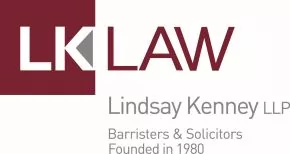Once a family law proceeding has been commenced and the parties have exchanged their Form F8 Financial Statements, the next step in the process is attending a Judicial Case Conference ("JCC"). Below is general information regarding the JCC process which is intended to assist in your preparation:
- The JCC is an informal meeting between all parties in a family law matter and is presided by a Judge or Master from the Supreme Court of British Columbia. Due to the COVID19 pandemic, currently JCCs are held typically via teleconference.
- The JCC is an opportunity for parties to canvass and narrow down any issues and turn the parties' minds to possibly resolving issues as well.
- While the JCC is a great opportunity for parties to consider settling all matters, family matters tend to be more complex and do not always lend themselves to settling all issues at the JCC. As such, your lawyer will discuss with you what particular orders they will be seeking at the JCC to ensure that the family matter continues to move forward.
- Parties should appreciate that, at the JCC, the presiding Judge
or Master cannot make substantive orders unless
consented to by all parties. On the other hand, the presiding Judge
or Master can and will make procedural orders
intended to move the matter forward, including, but not limited to,
the following:
- deadlines for the exchange of the parties' List of Documents;
- scheduling a mediation;
- canvassing and booking trial dates;
- booking dates for discoveries; and
- specific disclosure requests made by the parties at the JCC.
- The JCC is a strict requirement for all family law matters and parties must attend the JCC before they can bring any applications seeking substantive orders from the Court. The Supreme Court Family Rules, however, does provide exceptions that allow parties to bypass the JCC process and obtain certain substantive orders without attending a JCC. Your lawyer will assess the factual matrix of your matter and advise on the best way forward.
- At the conclusion of the JCC, the presiding Judge or Master will make various orders intended to move the matter forward. The parties, or, if the parties retained counsel, their lawyers, will sign an Order Made After Judicial Case Conference which will be sent for filing at the Supreme Court registry. When parties attended JCCs in person prior to the COVID19 pandemic, the parties or their lawyers signed a JCC Case Management Plan.
- Upon completing the JCC and obtaining an order that the parties
are released from the JCC program, parties can
then move forward with filing their Notice of
Applications seeking interim relief including, but not
limited to, the following orders, if applicable:
- Interim child support;
- Interim spousal support;
- Sale of the matrimonial home; and
- Document disclosure.
As stated previously, JCCs are intended to be an informal meeting between the parties with the goal of turning the parties' minds to resolving some, if not most, outstanding issues. Your lawyer will discuss with you the best way forward for your particular circumstances and will discuss steps that you can take after the JCC, including possibly scheduling an application for interim relief.
For some preliminary information about your separation, including commencing a family law proceeding, we encourage you to check out our article titled So You're Getting Separated. Now What found here and additional resources section found here.
This article is intended to be an overview of the law and is for informational purposes only. Readers are cautioned that this article does not constitute legal or professional advice and should not be relied on as such. Rather, readers should obtain specific legal advice in relation to the issues they are facing.
About Mackrell International - Canada - Lindsay Kenney LLP is a full service business law firm with offices in Vancouver and Langley, BC and a member of Mackrell International. Mackrell International - Canada is comprised of four independent law firms in Alberta, British Columbia, Ontario and Quebec. Each firm is regionally based and well-connected in our communities, an advantage shared with our clients. With close relations amongst our Canadian member firms, we are committed to working with clients who have legal needs in multiple jurisdictions within Canada.


